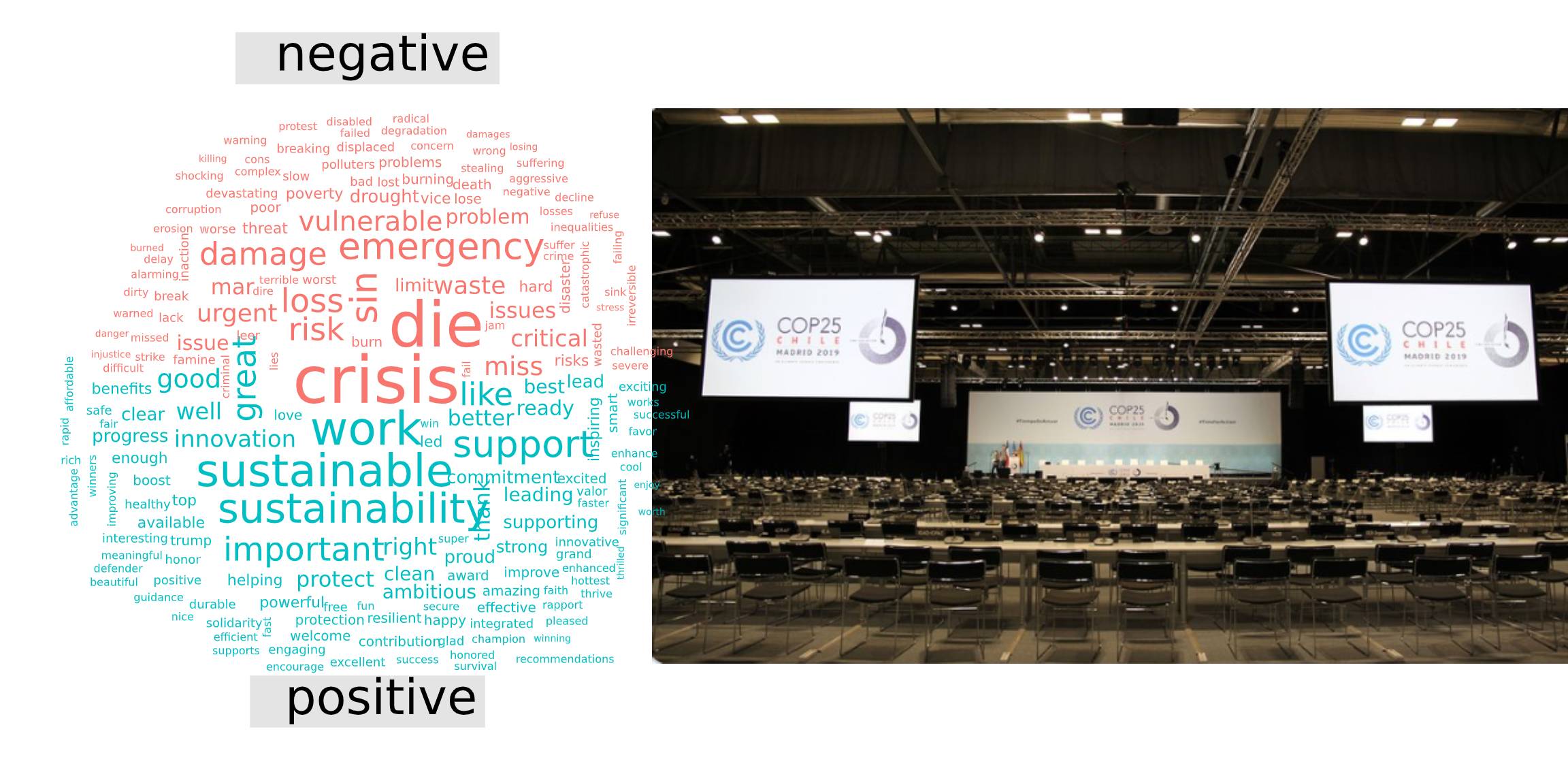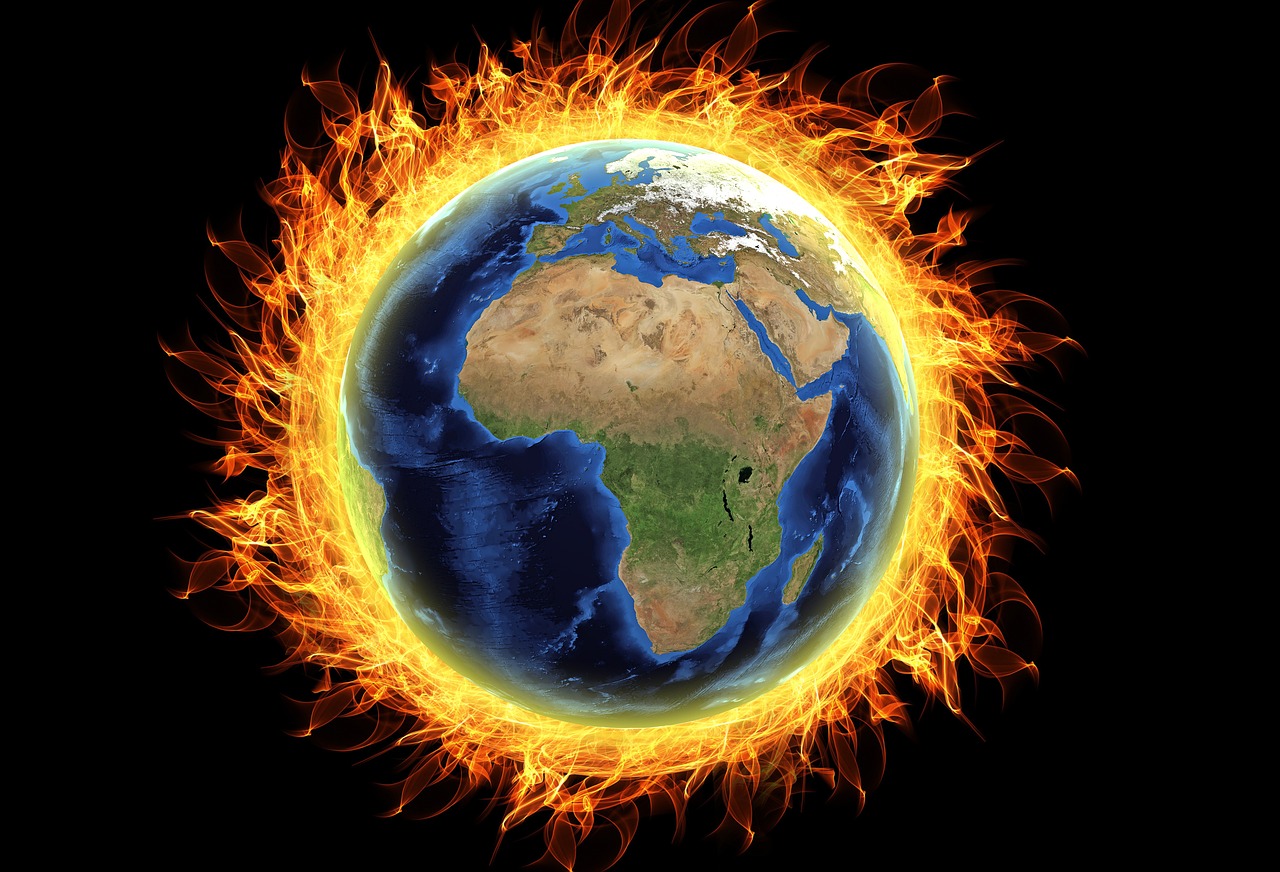Sentiment Analysis of Twitter users during COP25: Governments losing trust on Climate Action
Sentiment analysis of Twitter users during COP25 in Madrid, being held from December 2-13, shows widespread fear on climate ‘change’ due to global warming but almost no trust on governments in meeting the emission targets. In the analysis the sentiment on ‘action’ was found to be highly positive but the million-dollar question is - who will act to achieve 1.5-degree Celsius target by 2030?

- Country:
- Spain
The climate scientists and activists from throughout the globe are brainstorming in the Madrid city of Spain to hammer out an action plan for better implementation of the Paris Agreement to meet the target of peaking global warming at 1.5 degree Celsius by 2030. In his inaugural address on December 2, the UN Secretary General Mr. Antonio Guterres formally raised the alarm on the possibility of ‘missing the target’ and need for urgent action by the governments. Besides, various research reports presented during the conference also revealed that extreme weather conditions have caused natural disasters throughout the world, killing millions of people and devastating trillions of assets. As the global warming is still increasing due to the emission of greenhouse gases, such disasters are likely to increase manifold in future.
How serious the governments are on these reports? In COP25, the political representatives claim to have been doing their best to cut greenhouse emissions. Do the people trust their words?
VisionRI deciphered the public mood on COP25 by conducting sentiment analysis through a scientifically proven methodology. In this exercise 43,000 tweets posted on two hashtags #COP25 and #TimeForAction, in two time intervals, December 2 to 6 and December 7 to 10, were analyzed. The analysis has brought in some facts which provide an insight on how the promises of meeting emission targets have reduced to just a PR exercise.
People hardly trust governments on climate action
Though their representatives have been making promises to cut emissions, the people throughout the world hardly trust the governments. In the sentiment analysis, the maximum trust was shown in the word ‘COP’ followed by ‘green’, and ‘ambition’. In the first time interval the trust on ‘economy’ was at 10th rank but in the second time interval a new word ‘agreement’ was ranked 8th position among Twitter users. Besides, the words ‘food’, ‘important’, ‘policy’, ‘director’, ‘real’ and ‘good’ were also expressed to show the trust. The word ‘agreement’ actually shows the people throughout the world trust that the effective implementation of the Paris Agreement would save the planet. The Twitter users also believe that the governments throughout the world should be more ambitious in reducing greenhouse emissions.
The word ‘government’ could also not feature among top ten words used by the Twitter users to express their positive sentiments.
In another indication of deteriorating confidence of people in governments on the issue of climate change, the word ‘government’ stands at 4th rank in receiving negative sentiments of Twitter users after ‘crisis’, ‘died’ and ‘fight’.
This analysis validates the passionate address of teenage climate activist Greta Thunberg in the COP25 on Wednesday criticizing politicians and CEOs for their lack of response to environmental issues. In her words ‘clever accounting and creative PR’ were being used to make it look like real action was happening when ‘almost nothing is being done’.
Fear on climate change dominates the minds
The fear of climate change was dominating sentiment throughout the period of study. In sentiment analysis, the fear on the word ‘change’ scored highest among the nine sentiments – anger, anticipation, disgust, fear, joy, negative, positive, sadness, surprise and trust - analyzed in the study. The increasing use of the phrase 'climate emergency' was also vindicated in the study as the word ‘emergency’ was the 3rd highest for expressing sadness, 4th for surprise, 6th for negative, and 8th for fear. The words used to express positive sentiments were ‘action’, ‘join’, ‘youth’, ‘green’, ‘ambition’ ‘learn’, ‘food’, ‘agriculture’ ‘public’ and ‘important’. Besides, the words ‘green’, ‘ambition’, ‘clean’ were also used to express joy while ‘die’ ‘sin’, ‘loss’, ‘damage’, ‘pollution’ and ‘disaster’ were used to express disgust and sadness. This indicates that the reports on natural disasters and predictions about more severe upcoming disastrous due to global warming have created awareness among masses on climate change.

Expectations high from youths
The sentiment analysis reveals that the words ‘youth’ and ‘young’ prominently featured in most of the sentiments expressed on the above two Twitter hashtags. In both the time intervals of study, the word ‘youth’ ranked 1st in expressing anger followed by the word 'fight’. These words were also prominently used in expressing sentiments of joy, surprise, anticipation, fear, and positivity.
The Climate Strike campaign – Fridays for Future – seems to have created awareness among the masses particularly youths but it’s impact on making any significant change in the attitudes of the countries on negotiation table are yet to be tested.
Languages also reveal inaction on Climate Crisis
The sentiment analysis shows that out of the six languages recognized by the United Nations only three – English, Spanish, and French were prominently used on Twitter while Arabic, Chinese and Russian were almost absent. This is another indication that the Arab countries, China and Russia are not much enthusiastic about the COP 25 and the Paris Agreement.
Just before the COP 25, the trade war between China and the European Union came into the open when the later announced to impose ‘carbon border tax’ on Chinese products to which China served a strong rebuttal. The economic dependence of Arabian countries on fossil fuel has been a bone of contention on tougher 'safeguards on carbon markets' proposed in COP 25. In various reports, Russia also fared poorly in meeting emission targets. The Germanwatch Report 2019 has marked Russia’s actions on cutting emissions as ‘worst possible and critically insufficient'.
METHODOLOGY
The sentimental analysis is based on the data extracted from Twitter hashtag(s) #COP25 and #TimeForAction in two time intervals – December 2 to 6 and December 7 to 10. In these two time intervals – 21,000 and 22,000 tweets were extracted from Twitter using API (application programing interface). The exercise aimed to analyze the sentiment of Twitter users inter-temporal. The tweets were subjected through three methods of natural language processing – BING lexicon, NRC lexicon and AFINN lexicon – for sentiment analysis.
Research Team: J.P. Singh, Editor-in-Chief, Neeraj Singh Mehta, Technical Lead, Esham Chatterjee, Assistant Manager - Economic Studies and Planning, Siddheshwar Shukla, Associate Editor, and Senior Sub-Editors, Parag Narang and Subhro Prakash Ghosh.
Disclaimer: The conclusions drawn in the sentiment analysis are subject to technological limitations of data extraction and methodology(ies) used for data processing. This study is based on analysis of tweets only and the retweets were not taken into account. All the available precautions have been made to maintain the objectivity of the research and its presentation in a scientific fashion.
- READ MORE ON:
- Sentiment Analysis
- COP 25
- Climate Action
- Governments
- climate scientists
- Madrid city of Spain
- Paris Agreement
- UN Secretary General Mr. Antonio Guterres
- #COP25
- #TimeForAction
- PR exercise
- Greta Thunberg
- Fridays for Future
- Germanwatch
- BING lexicon
- NRC lexicon
- AFINN lexicon
- VisionRI
- Climate Emergency
- FIRST PUBLISHED IN:
- Devdiscourse

 Devdiscourse News Desk
Devdiscourse News Desk









